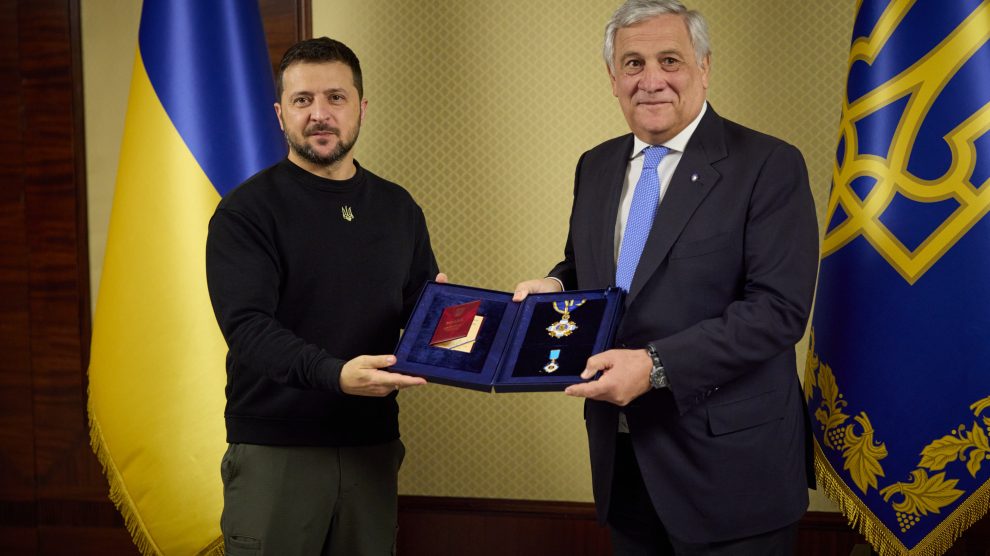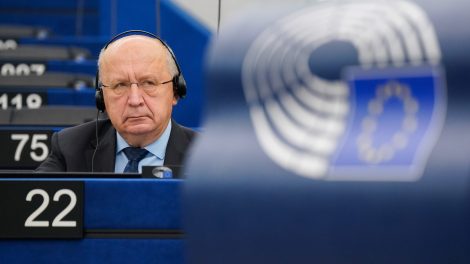Decoding the news. “Rebuilding Ukraine according to Western standards is a truly historic opportunity, as well as a worthy endeavour,” writes Italy’s Deputy Prime Minister and Foreign Minister, Antonio Tajani, in an exclusive op-ed for our sister magazine Formiche, featured in Issue 215, titled “Rebuild Ukraine”.
- “It is in this spirit that we are working towards a successful conference outcome,” he adds.
- Behind Tajani’s vision lies Rome’s strategic ambition: to consolidate Italy’s role as a diplomatic, industrial, and cultural hub in Ukraine’s post-war reconstruction and the reshaping of European security.
The context. In his op-ed, Tajani condemns the “unjustified Russian aggression” and emphasises that “supporting Ukraine remains a priority for our security and our future.”
- Italy has already committed €2.5 billion in economic, humanitarian and defence aid.
- Rome’s governments have consistently supported President Volodymyr Zelensky’s efforts for a “just and lasting peace.”
The Rome Conference. Now in its fourth edition — following Lugano (2022), London (2023), and Berlin (2024) — the Ukraine Recovery Conference 2025 will take place at “La Nuvola” convention centre in Rome.
- Nearly 100 countries, 2,500 companies, and dozens of international organisations will attend.
- Tajani stresses that the goal is to “connect public and private actors to define essential commitments, programs and economic agreements.”
- The agenda revolves around a technical forum and a business fair, focusing on four “dimensions”: economic, human, local/regional, and reform-related.
Economic opportunities. According to the World Bank, reconstruction will require at least €500 billion. Over the next decade, the transport sector alone will require $78 billion, and rail infrastructure will need $15 billion.
- “Supporting Ukraine is not only a duty,” says Tajani, “I believe it is an extraordinary opportunity for shared growth.”
- He is convinced that “our companies will be able to make an outstanding contribution,” thanks partly to financial and insurance tools already activated by the government.
SMEs, culture, science. According to the OECD, small and medium-sized enterprises represent 99.9% of Ukrainian companies, employ 81.6% of the workforce, and generate over 70% of the country’s added value.
- Tajani highlights the structural affinities with Italy’s business ecosystem and the intention to facilitate collaboration.
- On the cultural front, Italy will contribute to rebuilding the roof of the Odessa Cathedral and launch, together with the European Commission and UNESCO, the Rome Declaration for Science, Research, and Innovation in Ukraine.
The political framework. Tajani frames reconstruction as a lever to support “Ukraine’s path toward EU accession” and to “give hope to a people who have resisted war with tenacity for over three years.”
- In the closing passage of his article, the minister writes: “Much remains to be done, but Italy’s support will never fail for the legitimate aspirations of the Ukrainian people to rejoin that common home we have been building for seventy-five years, ever since the Schuman Declaration was delivered on May 9, 1950.”
- “The Rome Conference will certainly be remembered as an important step in this direction.”





